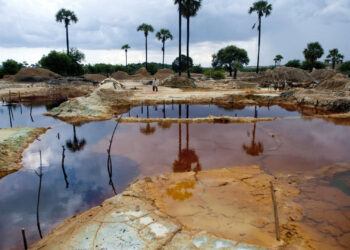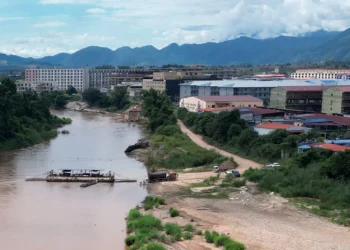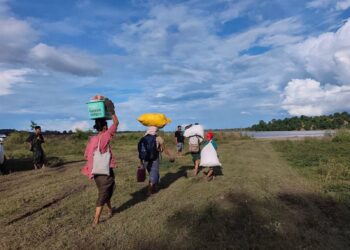Foreign tourists have been urged to avoid visiting Myanmar after the junta signalled plans to open up the country despite widespread ongoing rights abuses and violence including kidnappings and killings by the military, as well as food shortages and regular blackouts.
More than a year after it seized power and ousted Aung San Suu Kyi, Myanmar’s military has announced it plans to reopen for tourism and resume international flights on 17 April.
“I would not suggest anyone travels there,” said Michael Isherwood, chair of the Burma Humanitarian Mission and program director of charity Backpack Medics. “If Burma reopens to tourists, it’s primarily to benefit the junta,” which is oppressing the population.
When there were murmurs of a reopening late last year, Tin Tun Naing, the minister for planning, finance and investment for Myanmar’s ousted National Unity Government told The Straits Times it wasn’t a time for sightseeing and urged people not to visit.
Myanmar closed its borders, like many countries, to prevent the spread of Covid-19 in early 2020. At that time, an elected government led by Aung San Suu Kyi ruled the country but a military coup in February 2021 saw that power ceded. Resistance groups emerged and since then the south-east Asian country has been racked with violence, protests and economic collapse.
UN high commissioner Michelle Bachelet said last month Myanmar’s humanitarian crisis continues to expand amid systematic brutality by security forces. “The economy is on the brink of collapse. Over 14.4 million individuals are now assessed as being in humanitarian need,” she said, predicting that “food scarcity will sharply increase over the coming months”.
The UK government currently “advises against all but essential travel to Myanmar”, stating the risk of being arbitrarily detained or arrested.
Opening to tourism could signal a return to normalcy when “Burma is anything but normal these days,” said Isherwood, citing random arrests, the burning of villages, rape and extrajudicial killings in the ethnic and border areas.
According to the United Nations Human Rights Council, more than 1,600 people have died at the hands of security forces, 12,500 have been detained, 44,000 have been displaced, and 14 million require humanitarian assistance. Hundreds of children are also being held for ransom in unknown locations.
Last year, the Association of South-east Asian Nations (Asean) attempted to broker a peace plan with the junta government although little progress has been made on moving that forward.
Reopening to tourism was “an effort to promote a narrative of control and globalisation … an effort to establish the de facto authorities as being in control of the country, being legitimate”, said one aid worker living in Myanmar, who requested anonymity for safety reasons.
Tourists signify stability, said Bertie Alexander Lawson, CEO of Myanmar-based boutique travel agency Sampan Travel, and an image of stability is likely one the authorities want to project, he added. The security risk is higher now compared with a couple of years ago, said Lawson, but safe travel was possible “if you’re going with an operator that is taking the risk seriously”.
Visitors should, however, be informed of the context they’re coming into and calculate whether they’re going to have a positive impact on Myanmar communities, he said.
Jochen Meissner, founder and director of Yangon-based travel agency Uncharted Horizons Myanmar, advised against travel. “Even here [in Yangon], every day there are bomb attacks or assassinations, [and] a lot of army on the streets.”
While the junta government will likely make sure the main tourist attractions are safe, Meissner said he wouldn’t encourage anyone to visit for a holiday.
Only those vaccinated against Covid-19 will be able to enter the country before having to do a week-long quarantine with two PCR tests. Other challenges tourists will face include a lack of access to cash, following the buckling of the banking system, and power blackouts. “There are big parts of Yangon that are in total darkness on an evening so I’m not sure it’ll be very conducive for tourist travel,” said the aid worker.
Some parts of the country, including Kayah state and Chin state, formerly popular with tourists, will also be off limits, Lawson said. In such areas, there are reports of worsening living conditions with limited water, electricity, and internet access.
Meissner said: “Everything is not OK here.”
Credit – The Guardian
Tourists urged to avoid Myanmar as junta prepares to reopen to world | Myanmar | The Guardian






